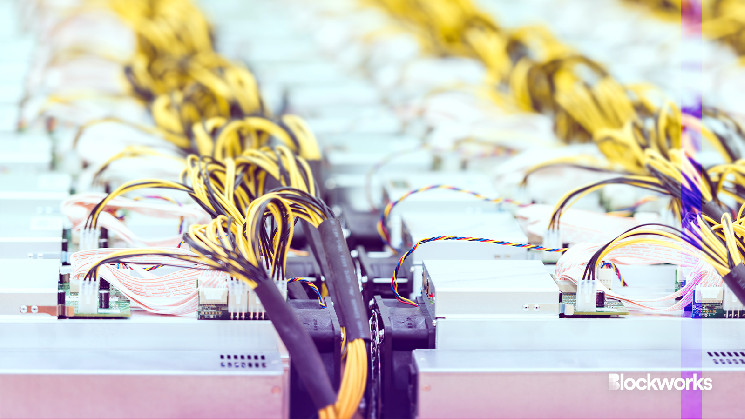The 2024 halving is behind us, and for some, that means that the reality has set in.
Block rewards were cut in half earlier this month, going to 3.125 BTC per block from 6.25.
The topic of how bitcoin miners prepared for such a drastic change was extensively covered, with some miners opting to diversify their revenue streams. Hut 8, for example, is already bringing in some revenue from segments like AI.
And with AI being such a big buzzword on Wall Street last year, could we see more publicly-traded miners devote resources to the new technology?
Read more: As crypto fundraising sees an uptick, where’s the capital set to go?
In short, yes. Analysts believe that AI could start becoming a bigger segment for miners. Though, according to Coinshares Research’s James Butterfill, the current revenue that miners such as Hut 8 and Bit Digital bring in are very small, roughly 3%.
With AI on the roadmap for other miners — like Core Scientific and Bitdeer — the revenue streams could increase by the end of the year, achieving roughly 5-10% of revenues, Butterfill added.
“As a very rough guide, capital expenditures on AI are roughly 40x the amount required for mining, with hugely demanding redundancy systems, consequently it is a big step up from mining,” he said.
But the promise of the returns may be enough to lure in miners, and catch the attention of investors on Wall Street.
Benchmark analyst Mark Palmer told Blockworks that miners with access to inexpensive power may “make the investments necessary to follow suit since the opportunity is so compelling and would provide downside protection during bitcoin bear markets.”
Read more: Hut 8’s business diversity to give it an edge after the halving: Benchmark
As more investors — including institutional ones — look to gain exposure to bitcoin through mining stocks, AI could draw them to specific miners.
Palmer said the institutional investors who added bitcoin mining stocks to their portfolios are “relatively more balanced in their criteria as they want both exposure to upside and the downside protection afforded by diversification. That is especially the case with buy-and-hold investors with long investment horizons.”
And while diversification wasn’t a make-or-break deal for investors in the past, the opportunity afforded by AI for miners with access to cheap power but AI could change that, Palmer added. It’s worth noting, however, that power is a different ballpark, as miners face energy use scrutiny worldwide.
Read more: The bid for a climate-conscious spot bitcoin ETF presses on
But the bull market may be enough to stave off the need to further diversify revenue streams for now.
“We are seeing the miners race to put in place as much energy and hash rate capacity as they can not only to offset the reduced bitcoin block subsidies from the halving, but also to capture the upside of self-mining during a bitcoin bull market,” he told Blockworks.
But Butterfill noted there’s a distinction between bitcoin mining and AI: One works at a lower power cost, while the latter is the opposite.
Read more: PayPal research proposes greener bitcoin mining
“Bitcoin mining is essentially won by the miners with the lowest energy costs, while AI is more profitable at higher energy costs, so we could well see those sites with high PPAs (Power Purchase Agreement) switch over,” he said.
AI and bitcoin mining could compete with mining, Butterfill said, causing the sector to shrink.
“We may well eventually see a situation where bitcoin mining focuses almost solely on stranded energy, where energy is the cheapest,” he said.
A shortened version of this article was included in today’s Empire newsletter.

